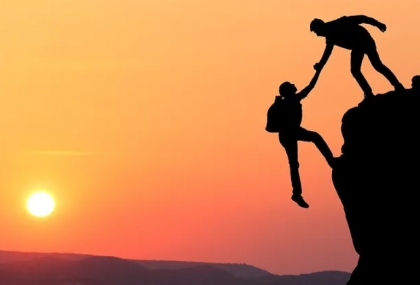Strength in Vulnerability: Building Deeper Bonds in Romantic Relationships
In the realm of romance, vulnerability often gets a bad rap. We're conditioned to believe that showing our flaws and weaknesses is a sign of weakness itself, something to be avoided at all costs. But what if vulnerability is actually the key to unlocking deeper connections and building stronger bonds with our partner?
In every relationship, there comes a point where we must decide whether to build walls or bridges. Walls keep us safe, but they also keep us isolated, preventing true intimacy from blossoming. Bridges, on the other hand, require vulnerability - they require us to lay bare our fears, insecurities, and past wounds in the hopes that our partner will meet us with empathy and understanding.
And it's in these moments of vulnerability that true connection flourishes. When we open up about our deepest fears and desires, we invite our partner to do the same. We create a safe space where both parties feel seen, heard, and accepted for who they truly are.
But vulnerability isn't just about sharing our fears, insecurities, and past wounds, it's also about embracing the messy, imperfect parts of ourselves. It's about admitting when we've made a mistake, asking for forgiveness, and working together to rebuild trust. It's about showing the authentic side of ourselves, even when it's uncomfortable or scary.
In a world that often equates vulnerability with weakness, it takes courage to let our guard down and be truly seen. But the rewards are immeasurable. When we embrace vulnerability in our romantic relationships, we invite deeper love, greater intimacy, and a sense of connection that transcends surface-level interactions.
On a final note, navigating the time to reveal vulnerability in a relationship can be delicate. While there's no one-size-fits-all answer, it's important to let vulnerability unfold organically as trust and intimacy deepen.
On a first date or in the early stages of a relationship, it's natural to be cautious and take the time to get to know each other before revealing deeply personal aspects of ourselves. However, there's also value in showing small acts of vulnerability early on, as sharing a vulnerability can encourage reciprocity and create an atmosphere of openness.
As the relationship progresses and trust grows, gradually revealing deeper layers of vulnerability can strengthen the bond between partners, and there are several ways to build vulnerability into the relationship. Ultimately, it's about listening to your intuition, being mindful of your partner's comfort level, and allowing vulnerability to unfold authentically as the relationship evolves.
So let's challenge the notion that vulnerability is something to be avoided. Instead, let's embrace it as the powerful tool it is - a tool for building bridges, fostering intimacy, and creating relationships that stand the test of time.



















